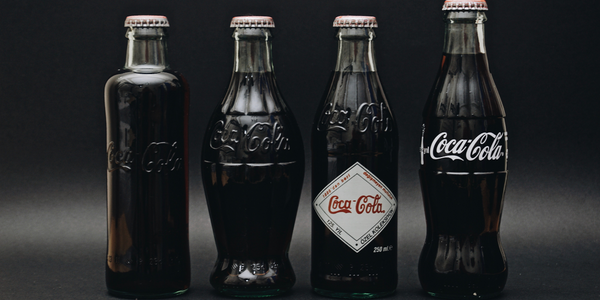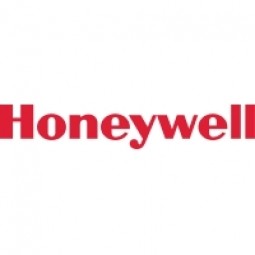公司规模
Large Corporate
地区
- Europe
国家
- United Kingdom
- Australia
产品
- Honeywell Thor VM1
- Honeywell Tecton
技术栈
- Mobile Computing
- Wireless Connectivity
- Integrated Multi-Range Scanning Technology
实施规模
- Enterprise-wide Deployment
影响指标
- Productivity Improvements
- Cost Savings
- Customer Satisfaction
技术
- 功能应用 - 仓库管理系统 (WMS)
- 功能应用 - 远程监控系统
- 网络与连接 - 无线局域网
适用行业
- 食品与饮料
- 零售
适用功能
- 仓库和库存管理
- 物流运输
用例
- 仓库自动化
- 库存管理
- 车队管理
服务
- 系统集成
- 硬件设计与工程服务
- 培训
关于客户
Accolade Wines is a leading wine company by volume in the UK and Australia, selling some of the world’s best-known brands in over 100 countries. The company owns wineries in five New World countries and employs over 1600 people worldwide. Accolade Wines operates a 24/7 UK facility employing over 500 people at its 900,000 square feet, 85,000-pallet capacity Bristol site. This site produces one million bottles of wine a day, ships 100 million cases of wine a year, and has 250 daily truck movements. The company has been recognized as a ‘world class manufacturer of the year’ by The Manufacturer and Institute of Mechanical Engineers and has received Tesco’s highest level of audit clearance.
挑战
Accolade Wines, a leading wine company, needed to renew its fleet of picking forklift trucks and its estate of truck-mounted and handheld mobile computers. The company required reliable, robust hardware at competitive prices to support its general expansion, including the installation of a third bottling line. Additionally, the new hardware needed to minimize maintenance costs and reduce the time required for staff training and familiarization. Accolade Wines also sought a reliable partner capable of providing technical support for the rugged computers.
解决方案
Renovotec, a UK rugged hardware provider, won the contract for mobile computer renewal, installation, and ongoing support. Renovotec deployed the Honeywell Thor VM1 truck-mounted computer and Honeywell Tecton handheld mobile computers. The installation was phased over several months, alongside forklift truck decommissioning and replacement, which helped minimize staff training and familiarization time. The new hardware, being smaller and easier to handle, received positive feedback from warehouse staff. The handheld computers were replaced over two weeks and are used in all aspects of the warehouse operation and manufacturing area to scan stock to and from the lines. The Thor VM1’s Smart Dock feature allows for quick mounting and removal, reducing maintenance costs and lost productivity. The Tecton handheld computers, with their rugged design and integrated multi-range scanning technology, meet the demands of the warehouse environment and improve productivity.
运营影响
数量效益

Case Study missing?
Start adding your own!
Register with your work email and create a new case study profile for your business.
相关案例.

Case Study
The Kellogg Company
Kellogg keeps a close eye on its trade spend, analyzing large volumes of data and running complex simulations to predict which promotional activities will be the most effective. Kellogg needed to decrease the trade spend but its traditional relational database on premises could not keep up with the pace of demand.

Case Study
HEINEKEN Uses the Cloud to Reach 10.5 Million Consumers
For 2012 campaign, the Bond promotion, it planned to launch the campaign at the same time everywhere on the planet. That created unprecedented challenges for HEINEKEN—nowhere more so than in its technology operation. The primary digital content for the campaign was a 100-megabyte movie that had to play flawlessly for millions of viewers worldwide. After all, Bond never fails. No one was going to tolerate a technology failure that might bruise his brand.Previously, HEINEKEN had supported digital media at its outsourced datacenter. But that datacenter lacked the computing resources HEINEKEN needed, and building them—especially to support peak traffic that would total millions of simultaneous hits—would have been both time-consuming and expensive. Nor would it have provided the geographic reach that HEINEKEN needed to minimize latency worldwide.

Case Study
Improving Production Line Efficiency with Ethernet Micro RTU Controller
Moxa was asked to provide a connectivity solution for one of the world's leading cosmetics companies. This multinational corporation, with retail presence in 130 countries, 23 global braches, and over 66,000 employees, sought to improve the efficiency of their production process by migrating from manual monitoring to an automatic productivity monitoring system. The production line was being monitored by ABB Real-TPI, a factory information system that offers data collection and analysis to improve plant efficiency. Due to software limitations, the customer needed an OPC server and a corresponding I/O solution to collect data from additional sensor devices for the Real-TPI system. The goal is to enable the factory information system to more thoroughly collect data from every corner of the production line. This will improve its ability to measure Overall Equipment Effectiveness (OEE) and translate into increased production efficiencies. System Requirements • Instant status updates while still consuming minimal bandwidth to relieve strain on limited factory networks • Interoperable with ABB Real-TPI • Small form factor appropriate for deployment where space is scarce • Remote software management and configuration to simplify operations

Case Study
Energy Management System at Sugar Industry
The company wanted to use the information from the system to claim under the renewable energy certificate scheme. The benefit to the company under the renewable energy certificates is Rs 75 million a year. To enable the above, an end-to-end solution for load monitoring, consumption monitoring, online data monitoring, automatic meter data acquisition which can be exported to SAP and other applications is required.

Case Study
Coca Cola Swaziland Conco Case Study
Coco Cola Swaziland, South Africa would like to find a solution that would enable the following results: - Reduce energy consumption by 20% in one year. - Formulate a series of strategic initiatives that would enlist the commitment of corporate management and create employee awareness while helping meet departmental targets and investing in tools that assist with energy management. - Formulate a series of tactical initiatives that would optimize energy usage on the shop floor. These would include charging forklifts and running cold rooms only during off-peak periods, running the dust extractors only during working hours and basing lights and air-conditioning on someone’s presence. - Increase visibility into the factory and other processes. - Enable limited, non-intrusive control functions for certain processes.








